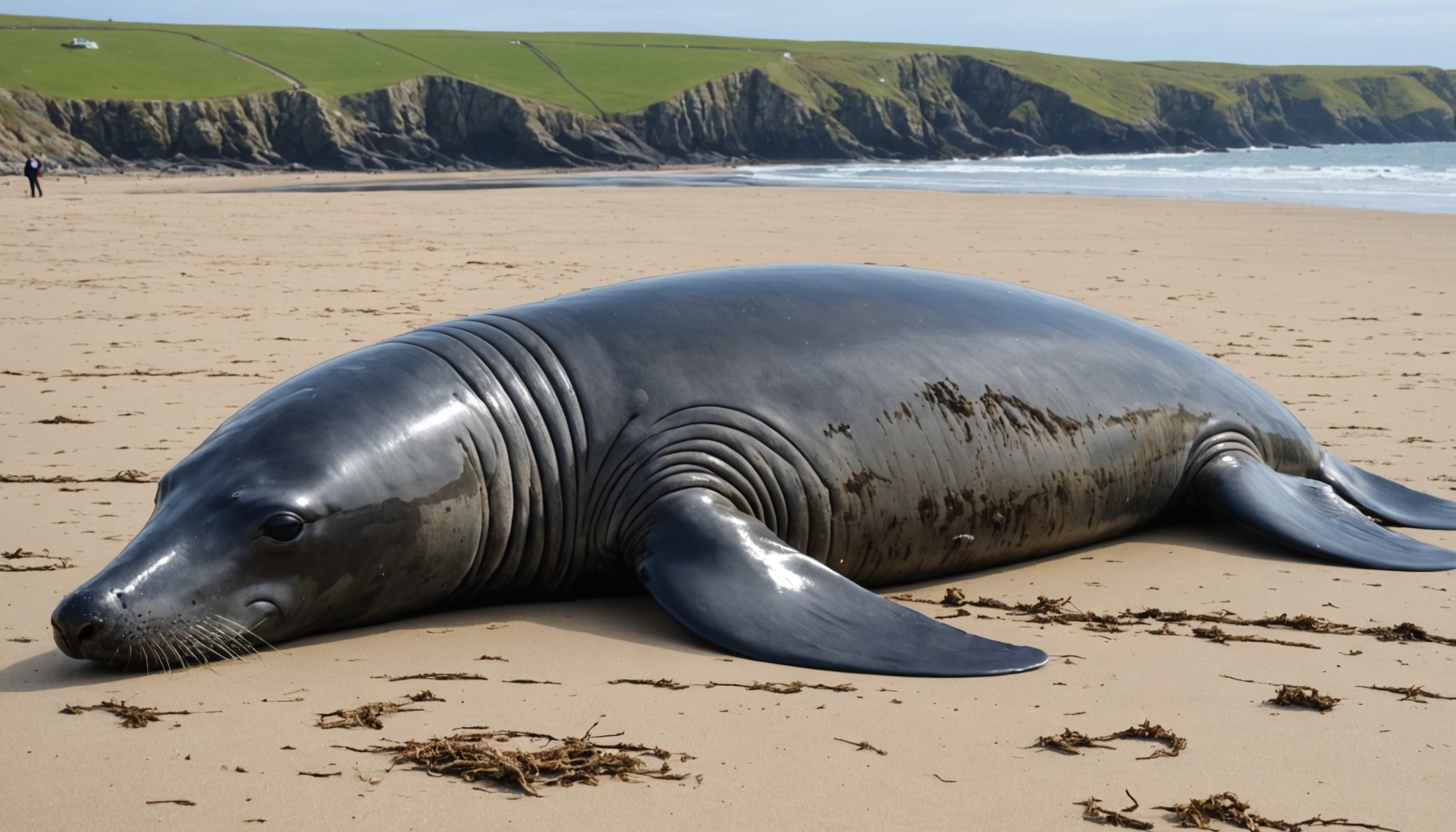Marine mammal strandings along UK shores present both a fascinating and concerning phenomenon. Understanding how to report these events properly is vital for conservation efforts and scientific research. This guide outlines essential steps for identifying, documenting, and reporting strandings effectively. Whether you're a beachgoer or a concerned local, your actions can contribute significantly to wildlife welfare and management. Let’s explore the importance of accurate reporting and the impact it can have on marine mammal health and conservation.
Understanding Marine Mammal Strandings
Strandings of marine mammals are significant events that can impact both local ecosystems and conservation efforts. These occurrences are often distressing, yet they offer valuable insights into the health of marine life.
En parallèle : Exploring the Effects of UK Climate Change Policies on Native Amphibian Populations
Common Causes of Strandings in the UK
In the UK, marine mammal strandings are attributed to a variety of factors. These can include natural causes like disease or age, as well as human-related issues such as pollution or fishing nets. Understanding these causes is crucial for developing effective conservation strategies.
Importance of Reporting Strandings
Reporting strandings is vital for marine life conservation. It allows scientists to collect data, understand patterns, and implement measures to protect these creatures. Public participation in reporting can significantly enhance conservation efforts.
En parallèle : Transforming UK Pesticide Policies: Safeguarding Pollinators for a Sustainable Future
Key Causes of Strandings:
- Natural Factors: Illness, injury, or disorientation
- Human Impact: Pollution, ship strikes, and fishing gear entanglement
- Environmental Changes: Extreme weather, habitat loss
Marine mammal strandings provide a window into the challenges faced by these creatures. By understanding and addressing the causes, we can contribute to the preservation of marine biodiversity. Conservation is a shared responsibility, and informed action can make a difference.
Reporting Procedures for Strandings
Understanding the reporting procedures for strandings is essential for effective marine conservation.
Step-by-Step Guide
When encountering a stranded marine mammal, follow these steps to ensure timely and accurate reporting:
- Assess the Situation: Determine if the animal is alive or deceased. Do not attempt to move or touch it.
- Gather Information: Note the location, date, time, and condition of the animal. Use landmarks for precise location details.
- Contact Authorities: Reach out to relevant organizations, such as the British Divers Marine Life Rescue, with the gathered information.
Emergency Contacts
Having the correct emergency contacts is important. Here are some key organizations to notify:
- British Divers Marine Life Rescue: Specialized in marine mammal rescue.
- Marine Management Organisation: Provides guidance and support.
- Local Wildlife Trusts: Assist with regional stranding protocols.
Providing Accurate Details
Ensure your report includes:
- Location: Use GPS if possible.
- Condition: Describe any visible injuries or signs of distress.
- Species Identification: If known, mention the species.
By meticulously following these stranding protocols, you contribute to conservation efforts, helping experts analyze and address the causes of strandings effectively. Your participation is invaluable in safeguarding marine life.
Legal Requirements and Considerations
Understanding the legal framework surrounding marine wildlife protection is crucial when encountering a stranded animal. The UK has stringent wildlife laws that safeguard marine mammals, ensuring their welfare and conservation.
Overview of Laws Protecting Marine Mammals
In the UK, several laws protect marine mammals. The Wildlife and Countryside Act 1981 and the Conservation of Habitats and Species Regulations 2017 are pivotal. These laws prohibit harm and disturbance to marine wildlife, underscoring the importance of responsible behavior when encountering a stranded animal.
Legal Responsibilities
When you come across a stranded marine mammal, it is your legal responsibility to report it. This ensures that experts can respond appropriately, aiding in the protection and study of these animals. Failing to report a stranding can lead to legal consequences.
Consequences of Non-Reporting
Neglecting to report a stranding can result in penalties, as it violates UK wildlife laws. Such actions hinder conservation efforts and can exacerbate the distress of the animal.
Key Legal Points:
- Report Obligations: Ensure timely reporting.
- Penalties: Legal repercussions for non-compliance.
- Protection Laws: Understand relevant legislation.
By adhering to these legal requirements, you contribute to the preservation of marine biodiversity and uphold the principles of marine wildlife protection.
Safety and Ethical Considerations
Ensuring safety and ethical practices when dealing with stranded marine mammals is crucial.
Safety Precautions for Individuals
Approaching stranded mammals requires caution. Always prioritize personal safety by maintaining a safe distance. Avoid direct contact, as these animals can be unpredictable and may carry diseases. Use protective gear if necessary, and never attempt to move the animal without professional guidance.
Ethical Considerations in Handling
Ethical reporting is vital in managing strandings. It is essential to respect the animal's space and avoid causing further distress. Interactions should be minimal, focusing on observation rather than interference. Encouraging responsible behavior will help ensure the animal's welfare.
Importance of Keeping Distance
Maintaining a respectful distance from stranded marine mammals is paramount. This minimizes stress and potential harm to both the animal and individuals involved. Observers should refrain from loud noises or sudden movements that could disturb the animal.
Key Guidelines:
- Distance: Keep a safe and respectful distance.
- Observation: Focus on observing, not interacting.
- Protection: Use protective gear if necessary.
By adhering to these safety guidelines and ethical practices, individuals can play a crucial role in the responsible handling of marine mammal strandings.
Resources for Conservation and Support
Exploring opportunities and resources for marine wildlife enthusiasts.
Organizations Dedicated to Marine Mammal Conservation
Numerous organizations are committed to marine mammal conservation. These groups work tirelessly to protect marine ecosystems and provide essential support for strandings. Some key organizations include:
- British Divers Marine Life Rescue
- Marine Conservation Society
- Whale and Dolphin Conservation
These organizations offer a wealth of conservation resources and expertise.
Volunteer Opportunities
For those passionate about marine wildlife, volunteering provides a hands-on way to contribute. Opportunities range from participating in beach clean-ups to assisting in stranding responses. Volunteering not only aids conservation efforts but also offers personal growth and education in marine ecosystems. Consider joining local wildlife trusts or national initiatives to make a tangible impact.
Educational Resources
Understanding the complexities of marine ecosystems is crucial for effective conservation. Educational resources such as workshops, online courses, and seminars are available through various marine wildlife organizations. These resources empower individuals with knowledge about strandings and conservation strategies. Engaging with such materials can deepen one's understanding and foster a commitment to protecting marine life.
"The greatest threat to our planet is the belief that someone else will save it." – Robert Swan













